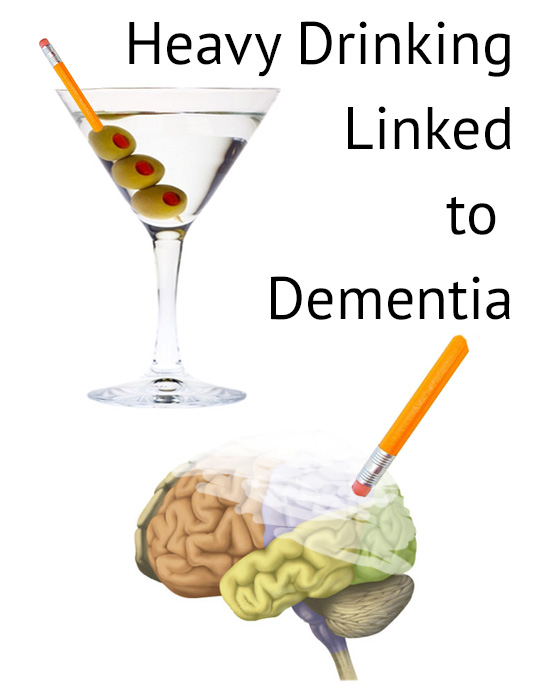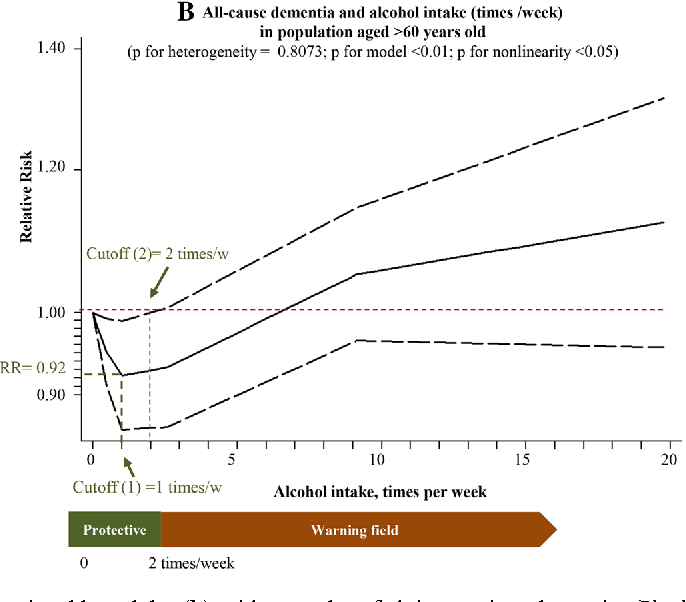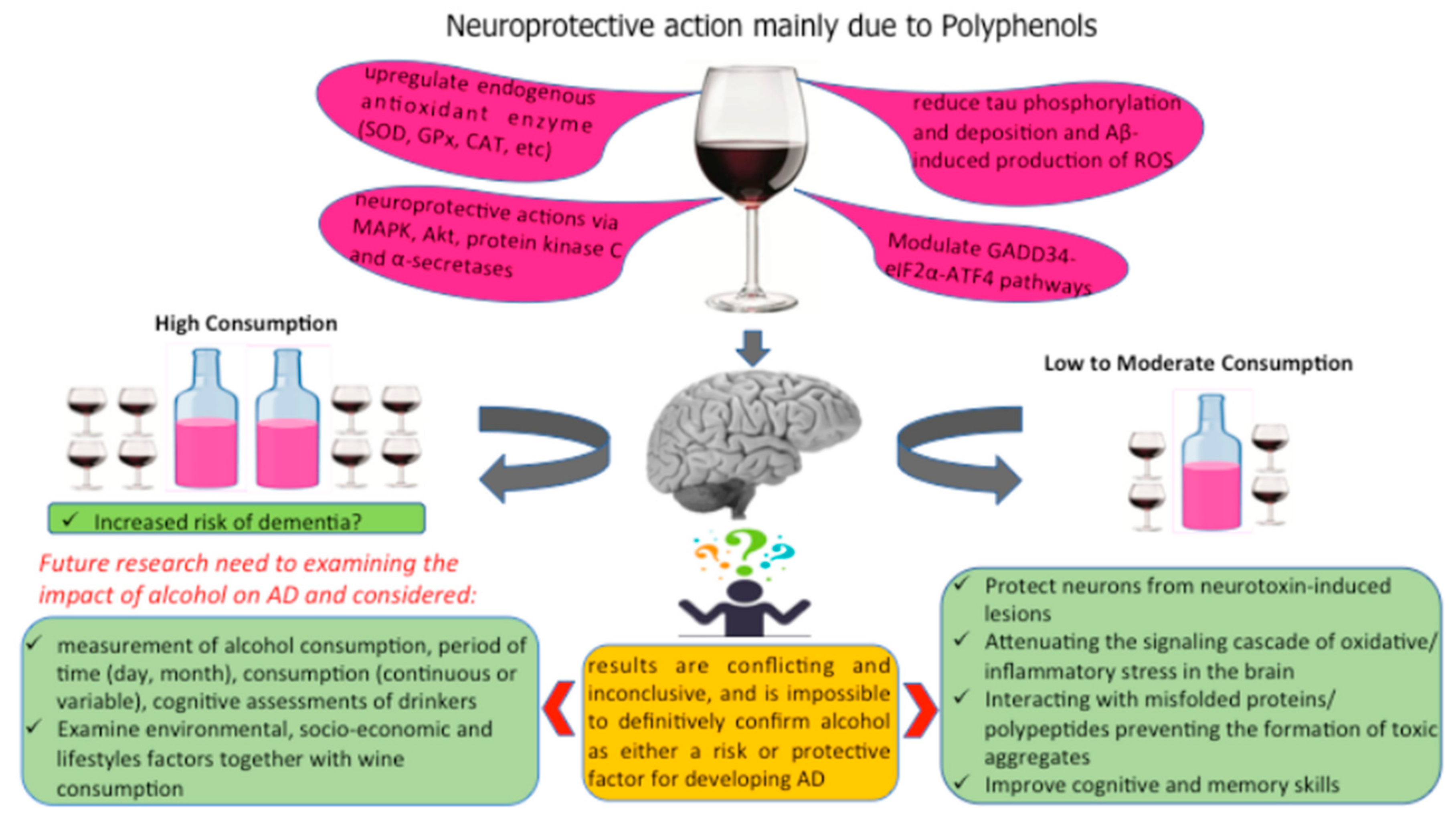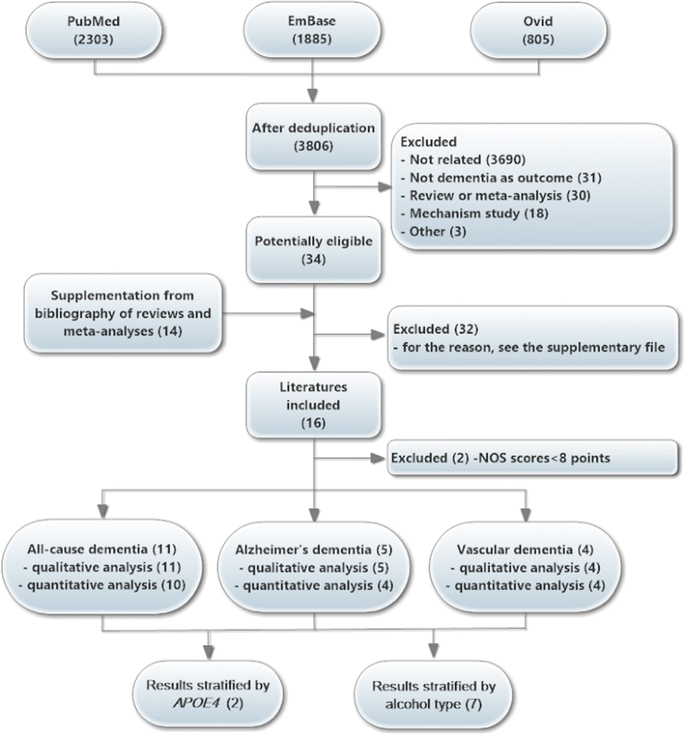Dementia and alcohol consumption
Home » Food and Drinks » Dementia and alcohol consumptionDementia and alcohol consumption
Dementia And Alcohol Consumption. Alcohol Consumption and Stages of Alzheimers Disease. Dementia and alcohol are related in this case because excessive alcohol consumption prevents normal neurological functioning. Concluded that alcohol consumption increases the risk of dementia and that people with the APOE E4 variant have a higher chance of developing dementia. A 2007 statement from the American Academy of Neurology pointed to the Framingham Offspring study which studied the MRI scans of 1839 people between the ages of 34 to 88.
 Alcohol Use And Dementia New Study Links Heavy Drinking To Early Onset Dementia Inspire Malibu From inspiremalibu.com
Alcohol Use And Dementia New Study Links Heavy Drinking To Early Onset Dementia Inspire Malibu From inspiremalibu.com
Alcohol consumption is one possible risk factor for AD. Alcoholism is associated with extensive cognitive problems Evert and Oscar-Berman 1995 including alcoholic dementia Smith and Atkinson 1997. However light to moderate alcohol intake might also reduce the risk of dementia and AD. A 2007 statement from the American Academy of Neurology pointed to the Framingham Offspring study which studied the MRI scans of 1839 people between the ages of 34 to 88. Long-term abuse of alcohol is related to the development of the Wernicke-Korsakoffs syndrome or alcohol dementia. Alcohol abuse is toxic to the brain and can damage memory.
However drinking alcohol in moderation has not been conclusively linked to an increased dementia risk nor has it been shown to offer significant protection against developing dementia.
Excessive alcohol consumption over a lengthy time period can lead to brain damage and may increase your risk of developing dementia. Early-onset is defined as being diagnosed before the age of 65. This makes sense if we consider the neurotoxic effect of alcohol basically the more of a toxin you consume the great the risk for dementia. Dementia and alcohol are related in this case because excessive alcohol consumption prevents normal neurological functioning. Alcohol abuse is toxic to the brain and can damage memory. A sample of 162 subjects aged 40-59 at baseline from the PREVENT-Dementia programme underwent MRI scans on two separate occasions mean interval 734 days.
 Source: alzheimersresearchuk.org
Source: alzheimersresearchuk.org
However drinking alcohol in moderation has not been conclusively linked to an increased dementia risk nor has it been shown to offer significant protection against developing dementia. Research shows that heavy drinking can increase the risk of developing dementia. Dementia and alcohol are related in this case because excessive alcohol consumption prevents normal neurological functioning. Can Alcohol Intoxication Cause Dementia. We measured longitudinal rates of brain atrophy using the FSL Siena toolbox.
 Source: bmj.com
Source: bmj.com
This makes sense if we consider the neurotoxic effect of alcohol basically the more of a toxin you consume the great the risk for dementia. Early-onset is defined as being diagnosed before the age of 65. Alcoholism is associated with extensive cognitive problems Evert and Oscar-Berman 1995 including alcoholic dementia Smith and Atkinson 1997. Results from studies investigating whether alcohol consumption is linked to dementia are still not conclusive. However light to moderate alcohol intake might also reduce the risk of dementia and AD.
 Source: researchgate.net
Source: researchgate.net
Since alcohol affects our memory system already we might weaken this part already for any development of dementia. Can alcohol consumption increase dementia risk. Alcohol consumption is one possible risk factor for AD. The study found that individuals who regularly over-consumed were three times more likely to develop a dementia as those who did not. Alcohol abuse is toxic to the brain and can damage memory.
 Source: semanticscholar.org
Source: semanticscholar.org
Excessive alcohol consumption over a lengthy time period can lead to brain damage and may increase your risk of developing dementia. However many studies do suggest that drinking more than the recommended weekly limit for alcohol increases a persons risk of developing dementia. Alcohol consumption is one possible risk factor for AD. These findings suggest that light-to-moderate alcohol consumption is associated with a reduced risk of dementia in individuals aged 55 years or older. Concluded that alcohol consumption increases the risk of dementia and that people with the APOE E4 variant have a higher chance of developing dementia.
 Source: pubs.niaaa.nih.gov
Source: pubs.niaaa.nih.gov
Early-onset is defined as being diagnosed before the age of 65. This makes sense if we consider the neurotoxic effect of alcohol basically the more of a toxin you consume the great the risk for dementia. In Bordeaux France a population-based prospective study found that subjects drinking 3 to 4 standard glasses of wine per day 250 and up to 500 ml categorized as moderate drinkers the crude odds ratio OR was 018 for incident dementia. That is provided your loved is NOT taking medications that interfere with alcohol and that the treating physician is in agreement. The most prevalent form of alcohol-related dementia is a combination of two conditions.
 Source: semanticscholar.org
Source: semanticscholar.org
The most prevalent form of alcohol-related dementia is a combination of two conditions. Can Alcohol Intoxication Cause Dementia. Alcohol Consumption and Stages of Alzheimers Disease. We measured longitudinal rates of brain atrophy using the FSL Siena toolbox. The effect seems to be unchanged by the source of alcohol.
 Source: mdpi.com
Source: mdpi.com
Can alcohol consumption increase dementia risk. Dementia and alcohol are related in this case because excessive alcohol consumption prevents normal neurological functioning. Alcohol dementia can appear to people of all ages regardless of gender height or body type. Long-term abuse of alcohol is related to the development of the Wernicke-Korsakoffs syndrome or alcohol dementia. In the early stages of AD dementia a glass of wine a day with a meal may not cause much harm at all.
 Source: thelancet.com
Source: thelancet.com
This makes sense if we consider the neurotoxic effect of alcohol basically the more of a toxin you consume the great the risk for dementia. Alcohol consumption is one possible risk factor for AD. Studies have also shown that people who drink heavily or engage. Alcohol abuse is toxic to the brain and can damage memory. Alcoholism is associated with extensive cognitive problems Evert and Oscar-Berman 1995 including alcoholic dementia Smith and Atkinson 1997.
 Source: inspiremalibu.com
Source: inspiremalibu.com
The effect seems to be unchanged by the source of alcohol. This leads to the development of. Since alcohol affects our memory system already we might weaken this part already for any development of dementia. Research into how alcohol impacts the brain has concluded that excessive consumption over time can lead to blackouts memory loss and dementia. These findings suggest that light-to-moderate alcohol consumption is associated with a reduced risk of dementia in individuals aged 55 years or older.
 Source: verywellmind.com
Source: verywellmind.com
Alcoholism is associated with extensive cognitive problems Evert and Oscar-Berman 1995 including alcoholic dementia Smith and Atkinson 1997. Alcohol consumption is one possible risk factor for AD. Can alcohol consumption increase dementia risk. To further complicate the issue consider that many individuals with moderate dementia. The effect seems to be unchanged by the source of alcohol.
 Source: link.springer.com
Source: link.springer.com
Alcohol consumption is one possible risk factor for AD. Early-onset is defined as being diagnosed before the age of 65. However light to moderate alcohol intake might also reduce the risk of dementia and AD. Alcohol Consumption and Stages of Alzheimers Disease. That is provided your loved is NOT taking medications that interfere with alcohol and that the treating physician is in agreement.
Source: alcoholpolicy.net
Since alcohol affects our memory system already we might weaken this part already for any development of dementia. However drinking alcohol in moderation has not been conclusively linked to an increased dementia risk nor has it been shown to offer significant protection against developing dementia. Research into how alcohol impacts the brain has concluded that excessive consumption over time can lead to blackouts memory loss and dementia. Can alcohol consumption increase dementia risk. Since alcohol affects our memory system already we might weaken this part already for any development of dementia.
 Source: alzforum.org
Source: alzforum.org
Concluded that alcohol consumption increases the risk of dementia and that people with the APOE E4 variant have a higher chance of developing dementia. Excessive alcohol consumption over a lengthy time period can lead to brain damage and may increase your risk of developing dementia. Dementia tied to alcohol use disorder is categorized as alcohol-related brain damage or. Abstinence was associated with a higher risk of dementia when the reference was alcohol consumption of 14 unitsweek. However many studies do suggest that drinking more than the recommended weekly limit for alcohol increases a persons risk of developing dementia.
 Source: bmj.com
Source: bmj.com
Concluded that alcohol consumption increases the risk of dementia and that people with the APOE E4 variant have a higher chance of developing dementia. The effect seems to be unchanged by the source of alcohol. Dementia tied to alcohol use disorder is categorized as alcohol-related brain damage or. In these analyses alcohol consumption 14 unitsweek was associated with an increased risk of dementia in a linear fashion among those drinking 14 unitsweek P for non-linearity097 using spline regressions. To further complicate the issue consider that many individuals with moderate dementia.
 Source: thelancet.com
Source: thelancet.com
Alcohol Consumption and Stages of Alzheimers Disease. Research shows that heavy drinking can increase the risk of developing dementia. Dementia and alcohol are related in this case because excessive alcohol consumption prevents normal neurological functioning. The most prevalent form of alcohol-related dementia is a combination of two conditions. A 2007 statement from the American Academy of Neurology pointed to the Framingham Offspring study which studied the MRI scans of 1839 people between the ages of 34 to 88.
If you find this site beneficial, please support us by sharing this posts to your favorite social media accounts like Facebook, Instagram and so on or you can also save this blog page with the title dementia and alcohol consumption by using Ctrl + D for devices a laptop with a Windows operating system or Command + D for laptops with an Apple operating system. If you use a smartphone, you can also use the drawer menu of the browser you are using. Whether it’s a Windows, Mac, iOS or Android operating system, you will still be able to bookmark this website.
